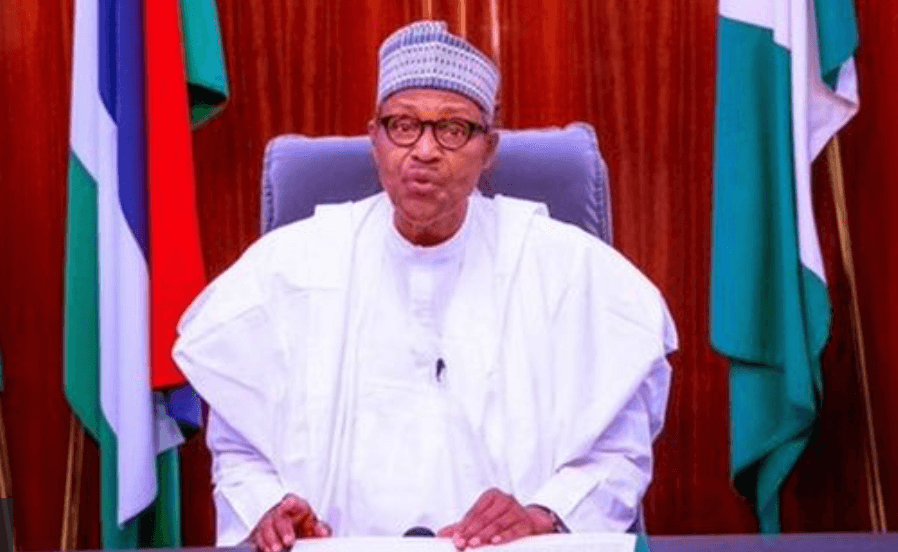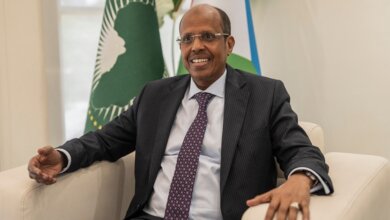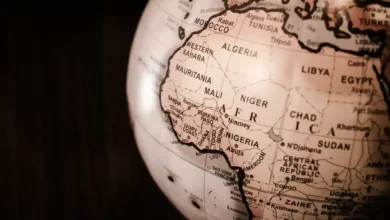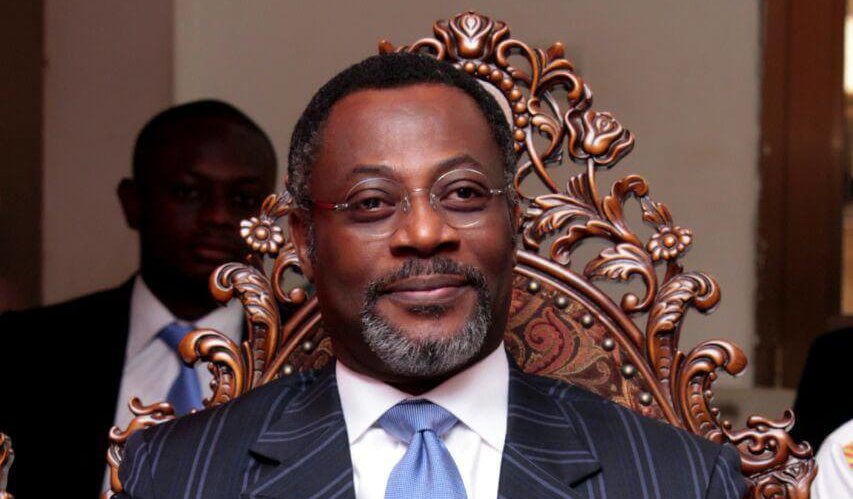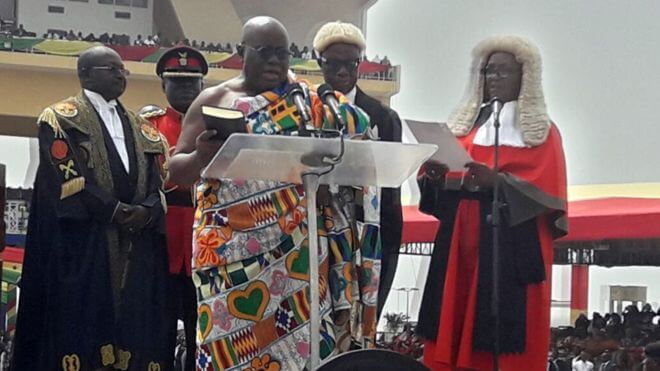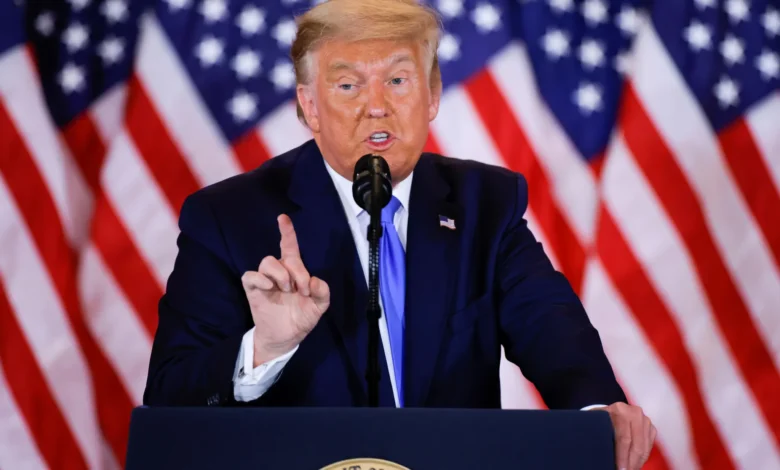
President Donald Trump, who was recently inaugurated, has issued a number of executive orders to cancel many policies of former President Joe Biden, including Executive Order 14089, that established the President’s Advisory Council on African Diaspora Engagement in the United States (PAC-ADE).
Established by the President Biden and Kamala Harris Administration on December 13, 2022, the PAC-ADE in its short time served as an important advisory body, bridging the gap between the United States government and the African Diaspora community in the U.S.
PAC-ADE comprised of 12 members representing diverse backgrounds and expertise, including government, sports, creative industries, business, academia, social work, and faith-based activities. The council was led by Executive Director Deniece Laurent-Mantey and Designated Federal Officer Matthew Becker.
The council strengthened ties between African communities and the U.S., addressed challenges and opportunities for the African Diaspora, fostered public- and private-sector collaboration for socioeconomic development, and promoted educational ties and exchanges.
It actively engaged in various initiatives, such as hosting the U.S.-Africa Leaders Summit in Washington DC, visiting Nigeria to strengthen ties and explore opportunities for collaboration, and hosting virtual meetings on key issues affecting the African Diaspora community.
Cancellation effects
Trump’s cancellation of the PAC-ADE Executive Order may undermine the progress the Advisory Council had made in strengthening U.S.-Africa ties and diminish the influence of the African Diaspora community in shaping U.S. policy towards Africa.
Once the dissolution of the Council takes effect and the PAC-ADE ceases to exist, its members will no longer be able to provide advisory services to the President, distancing the Oval Office from African-related affairs.
The council played a crucial role in promoting people-to-people ties, trade, and investment between the U.S. and Africa. In an announcement in December 2023 at the U.S.-Africa Leaders Summit, the U.S. said it had invested about $14.2 billion since Biden took office. However, there are worries that Trump may reverse this trade and investment.
The dissolution of the PAC-ADE could derail these efforts and create uncertainty around U.S.-Africa relations. The African Diaspora community in the U.S. may also lose a direct channel to the President and the administration, potentially diminishing their voices and influences in policy decisions.
However, ongoing initiatives and projects launched by the PAC-ADE, such as education partnerships, cultural exchange programs, and economic development projects could find a way of returning through the works of GH-PAC and others like it that seek to make heard the voice of Africans in the diaspora.
Alternate options
The U.S. regardless still works to promote trade and investment between U.S. and Africa through the African Growth and Opportunity Act (AGOA) which has allowed qualified African nations to export some of their produce to the US tax-free since its inception in 2000 under the Bill Clinton administration.
Although it is still hanging in a loop, given that Trump in his previous administration said that the program will not be extended when it ends in September 2025. While running for office in 2024, he also promised to impose a 10% income tax on all goods manufactured abroad.
With all this uncertainty, Oral Ofori, founder at TheAfricanDream Consultancy, a US-based information and communications research media consulting firm on Africa Affairs remains positive, believing that there are ways to go positively around this ban.
Even though Mr. Ofori felt AGOA might not be activated in 2025, he shares on X that “let’s not allow fear to bully us, rather, let’s arm ourselves with the light of knowledge for the many solutions that exist…” after sharing a few ideas with the African Diaspora communities.
However, the ‘Prosper Africa’ initiative unveiled by Trump’s previous administration in 2018 is still in effect, without news of his administration planning to cross it out yet. The initiative assists U.S. companies wanting to invest in Africa—through the Development Finance Corporation (DFC), which funds development projects in Africa and around the world.
Biden kept both running after he took over, and the DFC says it has so far invested more than $10bn (£8bn) in Africa. Last week, the African Development Bank (AfDB) signed a $700,000 Donor Contribution Agreement with Prosper Africa, and the United States Department of the Treasury to develop a Credit Rating Online Data Platform to reshape how international investors assess risk in African markets.
Can PAC-ADE be restored?
Following the cancellation of PAC-ADE by President Trump, Africa, and Africans in the diaspora could consider several actions to continue promoting their interests and engagement with the U.S. government.
The first step could be to advocate for reinstatement, emphasizing the importance of this platform for dialogue and cooperation. Africans in the diaspora could engage with Congress to push for legislation that supports U.S.-Africa relations and promotes the interests of African diaspora communities.
Already an attempt was made last year in anticipation of Trump’s new administration, with the introduction of ‘The African Diaspora Council Act’ by California Congresswoman Sydney Kamlager-Dove with lead co-sponsor and fellow Californian Sara Jacobs, who is the ranking member of the House Foreign Affairs Subcommittee on Africa.
Although the dissolution of PAC-ADE will equally affect the African Diaspora Council Act, Africa and Africans in the diaspora could establish alternative platforms for dialogue, cooperation, and advocacy, such as non-governmental organizations, community groups, or private sector initiatives.
It will strengthen diaspora networks and organizations that will promote collective action on issues impacting the African diaspora communities. It is necessary that Africans and Africans in the diaspora understand that the cancellation of PAC-ADE will require new strategies for advocacy.
What’s next for Africa?
Regardless of the stance taken by Trump’s administration, Africa needs to take several steps to promote its own growth and development—an “Africa First” policy. The African Continental Free Trade Area (AfCFTA) is a significant step towards regional integration. By promoting freer trade and investment within the continent, Africa can reduce its reliance on external partners and create a more self-sustaining economy.
The continent can also focus on strengthening trade ties with other regions, such as the European Union, China, and India. This diversification can help reduce dependence on the U.S. market and create new opportunities for African businesses.
Africa needs to develop home-grown solutions to its unique challenges. This includes leveraging technology, innovation, and entrepreneurship to address issues such as climate change, food security, and healthcare.
African countries can prioritize investments in infrastructure, education, and healthcare. This will help build a more skilled and productive workforce, improve competitiveness, and attract foreign investment. Which can be used in strategic partnerships with other regions and countries that share similar interests and values. It can include partnerships in areas such as renewable energy, agriculture, and cultural exchange.
The continent is rich in mineral resources, youth energy, and arable lands. Therefore, what Africa can bring to the table as a continental power cannot be overemphasized, if it stops depending on external limitations of how it should trade or run its policies.
Written by Abeeb Lekan Sodiq for TheAfricanDream.net.

Abeeb Lekan Sodiq is the Managing Editor of theafricandream.net, a pan-African news website subsidiary of US-based TheAfricanDream LLC. He is also a Human Resource Practitioner, and a freelance Graphics Designer. He has worked with prominent personalities, including ambassadors, secretariats, international organisations, universities, celebrities, NGO, and media firms.

